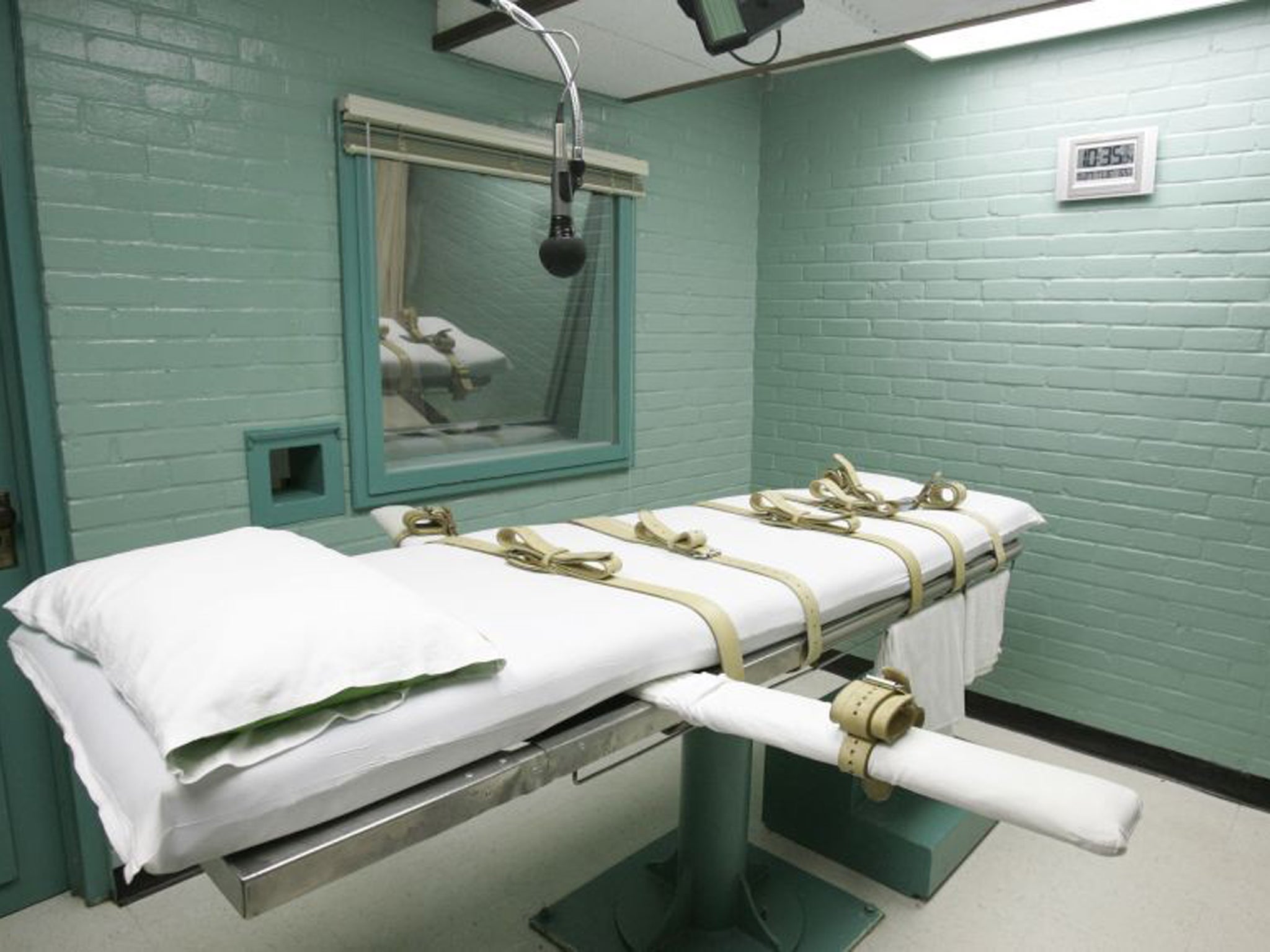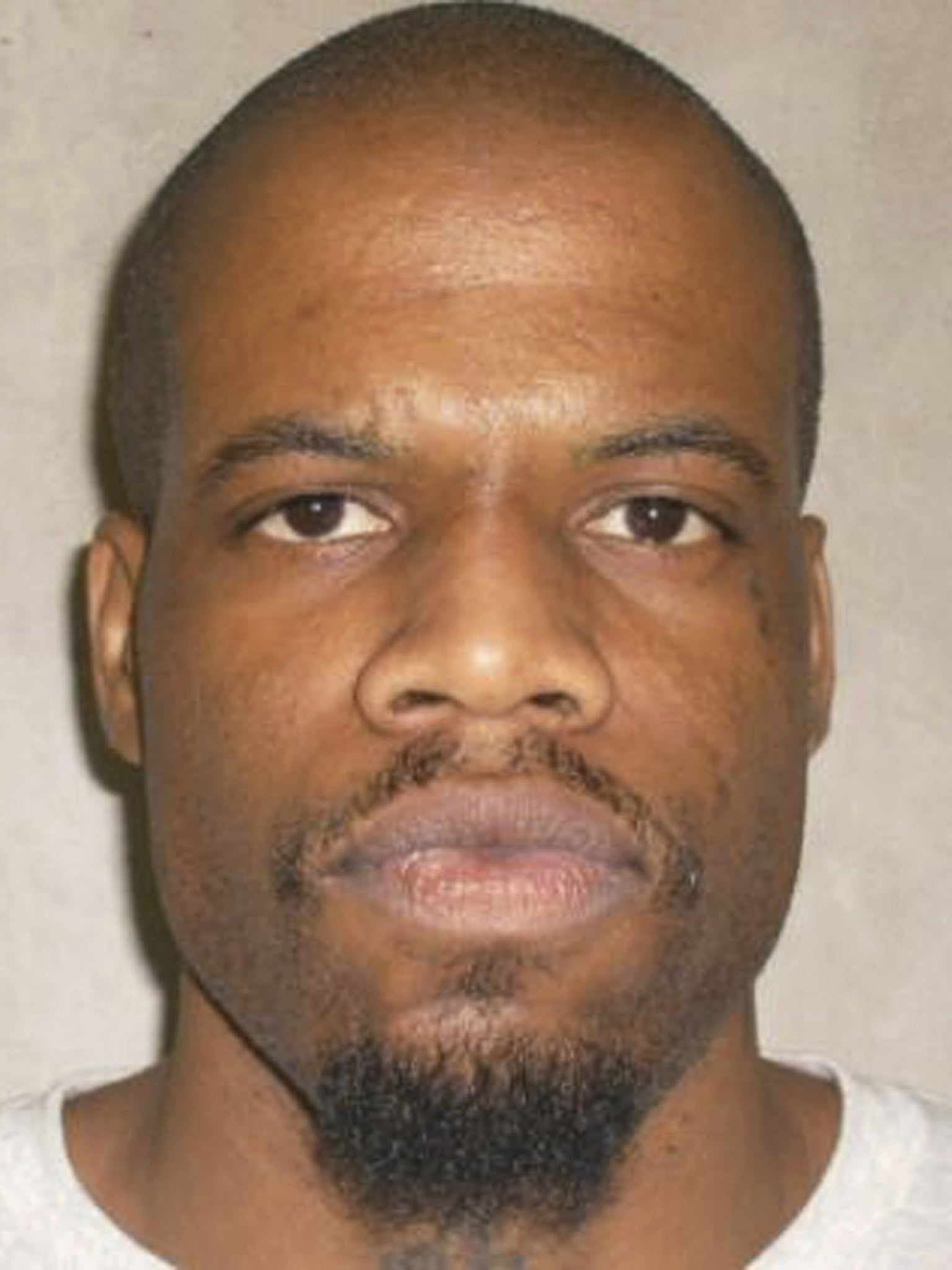Death penalty in the US: Oklahoma now first state to approve gassing method with nitrogen
The gas is banned from being used to put animals down in some US states

Your support helps us to tell the story
From reproductive rights to climate change to Big Tech, The Independent is on the ground when the story is developing. Whether it's investigating the financials of Elon Musk's pro-Trump PAC or producing our latest documentary, 'The A Word', which shines a light on the American women fighting for reproductive rights, we know how important it is to parse out the facts from the messaging.
At such a critical moment in US history, we need reporters on the ground. Your donation allows us to keep sending journalists to speak to both sides of the story.
The Independent is trusted by Americans across the entire political spectrum. And unlike many other quality news outlets, we choose not to lock Americans out of our reporting and analysis with paywalls. We believe quality journalism should be available to everyone, paid for by those who can afford it.
Your support makes all the difference.Oklahoma has become the first US state to approve the gassing of prisoners to death as capital punishment.
The new law that allows the use of nitrogen gas for executions was signed in by the state’s Republican governor Mary Fallin yesterday.
The alternative death penalty method would be used if lethal injections are not made possible due to a court ruling or drug shortage. They carry the risk of failure and prolonging deaths.
Executions are on hold in Oklahoma while the US Supreme Court considers whether the state’s current three-drug method of lethal injection is constitutional.
Supporters of the new law claim that nitrogen-induced hypoxia is a humane and painless method of execution that requires no medical expertise to administer – although there are no reports of the gas having been used to execute humans.
The two main objections to it being used – apart from the glaring obvious to those who oppose the death penalty – are that the method is untested and that the substance is even banned from putting down animals in some states.
Ms Fallin said: “I support that policy, and I believe capital punishment must be performed effectively and without cruelty.
“The bill I signed today gives the state of Oklahoma another death penalty option that meets that standard.”
The changes come after the botched execution of Clayton Lockett, 38, last year in which Oklahoma was using a new sedative as the first in a three-drug combination.
The inmate had been sentenced to death for shooting a 19-year-old woman and watching his accomplices bury her alive.

He writhed and groaned in pain and died of a heart attack 43 minutes after the process began. State officials tried to halt the injection after it failed and the fault was blamed on a poorly placed intravenous line.
States have been scrambling as European pharmaceutical companies have restricted the flow of lethal drugs.
Adam Leathers, spokesman for the Oklahoma Coalition to Abolish the Death Penalty, criticised the new law.
“This is not only a grotesque waste of resources but indicative of a corrupt value system,” he said.
“It is sad to know that our State’s collective bloodlust is so unabated that our leadership feels the need to spend resources to put a back up system into place so State sponsored murder can go on uninterrupted.”
Under the new law, lethal injection would remain Oklahoma’s first-choice method and nitrogen gas would be its first backup method – ahead of the electric chair, which the state hasn’t used since 1966, and a firing squad, which has never been used in Oklahoma.
Join our commenting forum
Join thought-provoking conversations, follow other Independent readers and see their replies
Comments